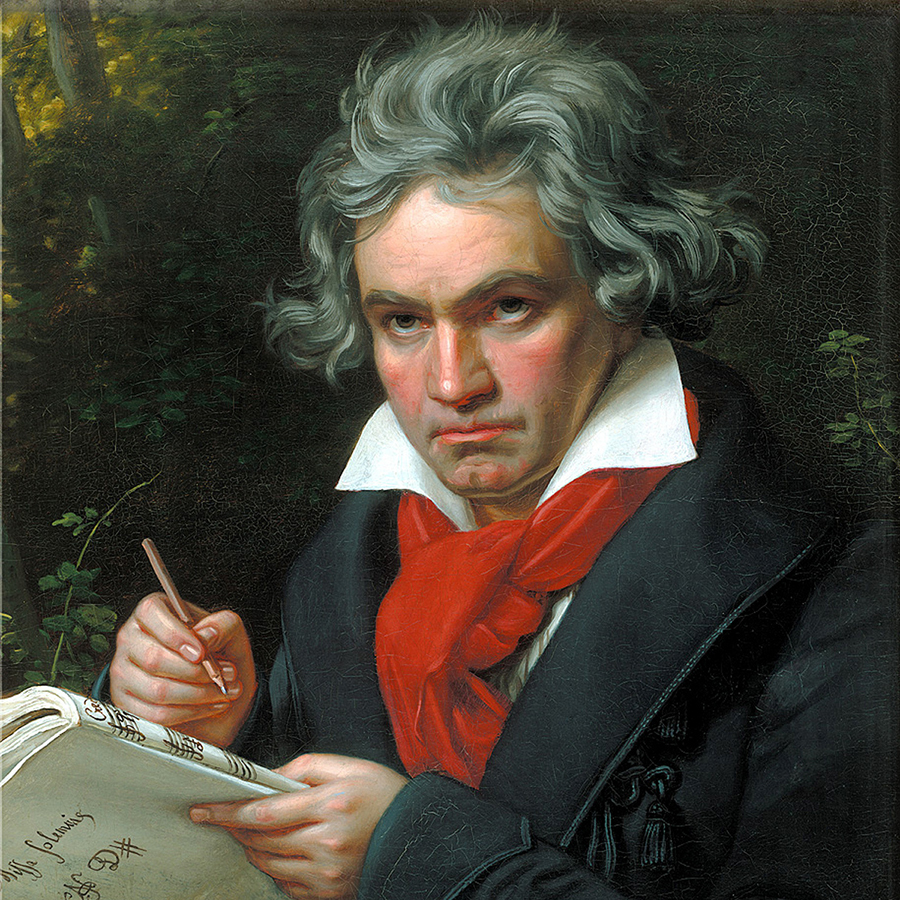
Beethoven was born in Bonn, Germany in 1770, to a Flemish family. He moved to Vienna in 1792 to study with Haydn and spent most of his life there. He is one of the pillars of classical music and is considered one of the most innovative composers in history, starting the transition between Classicism and Romanticism.
HEILIGENSTADT TESTAMENT
Beethoven's hearing loss was first documented in his Heiligenstadt Testament. The testament is a letter to his brothers, Carl and Johann, where the composer expresses his despair of losing his hearing and fear of sharing it with the world.
"O you men who think or say that I ammalevolent, stubborn or misanthropic, how greatly do you wrong me, you do not know the secret causes of my seeming (...) O how harshly was I repulsed by the doubly sad experience of my bad hearing, and yet it was impossible for me to say to men speak louder, shout, for I am deaf. Ah how could I possibly admit such an infirmity in the one sense which should have been more perfect in me than in others, a sense which I once possessed in highest perfection, a perfection such as few surely in my profession enjoy or have enjoyed."
The testament was written on October 6 of 1802, a few years before the Coriolan Overture and the ground breaking Symphonies 3 and 5.
"HEAR WHAT BEETHOVEN HEARD?"
Examples of what Beethoven's symphonies might have sounded like to the composer himself were prepared by Dr. Charles Limb, from the Department of Otolaryngology at Johns Hopkins University Hospital and it is available on the NPR website in Marin Alsop'sarticle about Beethoven hearing loss.
WHO WAS CORIOLAN?
Coriolan was a Roman general who led numerous battles in the name of Rome. After a successful military career, he decided to pursue a political career. This turned into disaster and Coriolan ended up being banished from Rome. Coriolan decided to take revenge and attack Rome, with the intention to disseminate the entire population. Coriolan's mother, who was very supportive of his political career, begged him to stop in order to clear his name and live a peaceful life with his wife and child. Coriolan regretted his acts and stopped the attack.
No one knows for sure what happened to Coriolan, but he became a legend and inspired many writers. Some of them, like Shakespeare, imagined he was murdered. Heinrich Joseph von Collin thought Coriolan ended his own life.
ABOUT THE OVERTURE
Beethoven wrote the Overture for Heinrich Joseph von Collin's play in 1807. It is written in his Heroic period, when Beethoven began to push the envelope of musical structures defined by Mozart and Haydn. During this time, he began to suffer increasingly from deafness.
Musically, Beethoven describes the aggression, pain, and wish for revenge in the very beginning of the Overture. The build-up of this anger is dissolved and the lyrical theme, representing his mother and wife, takes over. These two contrasting themes of peace and rage clash for a moment until the anger is contained and the Overture quietly ends.
by Alexandra Arrieche
